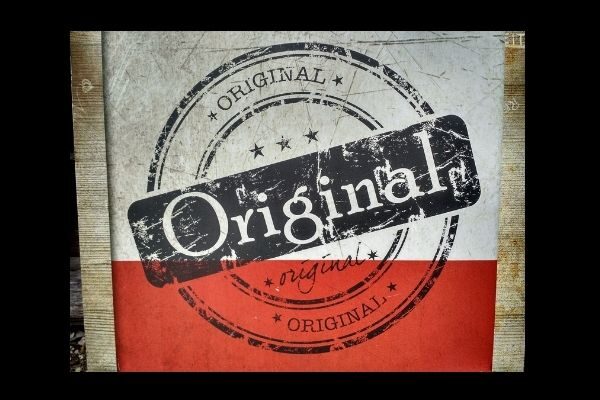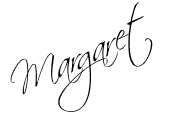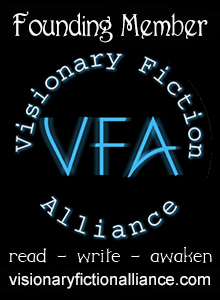
The idea of plagiarism scares me, as it should. I am a writer of fiction and of a blog, so I need to be careful in how I do research and pass it on, so I don’t use other people’s words as my own.
When I don’t know about a subject (which is often), I defer to experts. I use quotes, and I paraphrase. But this gets tricky.
As William Ing is quoted as saying, “Originality is Only Undetected Plagiarism.”
Think about it. Isn’t most of what we know something we’ve learned from someone else? We build on other people’s knowledge. That’s why we go to school, read texts, and study under teachers who pass on information they’ve learned from someone else.
Accidental Plagiarist
I’m convinced that a lot of plagiarism is unintentional, a matter of ignorance or laziness, rather than criminal intent. Did you know, for instance, that if you copy so much from a resource that it makes up the bulk of your work, even if you give the author full credit, that’s plagiarism? I found this out just in time for this post from a site called plagiarism dot ORG to prevent me from becoming an accidental plagiarist.
I also learned from Jane Friedman, visiting assistant professor at the University of Cincinnati, that if the article you’re referencing is very short, you can quote only one or two lines.
These facts are of special concern for bloggers, whose posts and the articles they reference are usually fairly short.
Also, for this post, I wanted to use two lines from the Beatles song, All You Need is Love. But after reading So You Want to Use Song Lyrics in Your Novel, I realized I COULD NOT use these lines without written permission from the owner. Using titles of songs are okay, but the concept of fair use does not apply to lyrics.
So how can we use research without getting into trouble?
A lot of it comes down to taking scrupulous notes and checking your final draft against the source material for accidental duplication of the author’s words.
Here are three excellent resources to guide you.
Plagiarism: What It is and How to Recognize and Avoid it. This site covers how to recognize unacceptable and acceptable paraphrases and strategies for avoiding plagiarism.
plagiarism dot Org. Gives a definition and examples of plagiarism.
Purdue Online Writing Lab. “Rules beginners aren’t aware of or don’t know how to follow.”
With practice and by taking meticulous notes, there are correct and legal ways to learn from others and pass it on as our own.
As always, thanks for stopping by,


As always, you've thrown us some good info to digest and to use. Plagarism is something any writer is concerned about. I know I try my best to not use direct quotes from any source that I post unless I purposedly give credit back to the author, but with you bringing these points to light, then I shall use a more scrupulous eye.
The bombshell you dropped regarding the use of lyrics as being unacceptable, hit me personally. Oh brother, how many times have I pecked out a few famous lines from a song? We've all done it, right? It wasn't my intent or yours to claim these words as our own. I do it as a way to express my mood or to reflect on a memory. This seems relatively harmless, but yet it looks like we've all been guilty of a no-no on this score.
With this issue (plargarims)stalking our mind, will it cause us, the author, to stumble in our own creative flow? Margaret stated that much of what we write stems from someone's teaching. How else can we be inspired to write? Being a writer can be tricky business.
However, we, the author, can use good ole common-sense. The vast Internet resources available today to find options for checking our writing for accidental plagarism makes our task less daunting than any other time. We can then submit our original work with pride to a publisher, literary agent, and finally our audience. In doing so, we have preserved our integrity.
Good job, Marget!
http://cathykennedystories.blogspot.com
PS: I posted your link to my blog to spread your words of wisdom. Thanks!
Thanks to Cathy Kennedy I found your post. I too, have just recently used the lyrics to a song in a post of mine. I have also quoted some sources but did not realize that I could not use more than a sentence. Now I am aware of these issues and feel it will take my writing to another level.
Hi Cathy. Until I did research for this post, I was unaware of how easy it is to ACCIDENTIALLY plagiarize other people's work. The lyric issue surprised me, as did how little of another writer's work one can actually reference if that work is short, such as a magazine article. I immediately went to my current novel and took out all song lyrics and replaced them with only song titles. I'm sure an agent or editor would have caught this transgression, but if self-publishing, one must be especially careful. I think rather than stumbling on our own creative flow, this should teach us to dig deep into our own creative source and come up with something mood-setting or CAREFULLY paraphrased using our own unique spin. Thanks so much, Cathy, for sharing my link on your blog.
Hi Katlupe. The only song lyrics I will keep are in my third novel because I have the permission of the artist to use it(though I plan to get this in writing before publication). As far as the sentence issue, it depends on the length of your work and the work you are referencing. The quoted work can not make up the bulk of your work. Or maybe we just need to learn how to ask for permission. Who knows, the writer or artist may be happy to share.
Using lyrics and references can be very tricky. It's important to do your research not only on the subject you're using, but on how much you can use and the references..
I've heard with blogs, that rarely does the original writers go after the individual. They might ask you to take it down, but won't sue. It's far to expensive especially over a blog that does the proper credits of work. With the internet things are changing, and I'm sure with the wide open spaces of the internet it will continue. It's just important say, that if you don't want to be copied, don't make something available for the coping, especially on-line.
Hi Lee. I agree. If you don't want your work to be copied, don't make it available on the Internet. To that, I add, if you don't want someone copying your work, have the same respect for other's work. Although, we may mean it as a compliment to the artist and figure we're giving them free publicity, we must still adhere to copyright rules.
I only started thinking about plagerism s short time ago. I used to type devotionals from books, then give a commentary on them. A friend of mine brought up the question if I wasn't afraid of getting in trouble, and my response was I don't see why I should be as long as I give them COMPLETE CREDIT and cite them on my post. I asked someone else, and she said the same thing. After that, something kept dealing with me (being spiritual, I believe it was the Holy Ghost) teaching me, and I decided to quit doing that. Now what I do, to help me with my writing, I will type the devotional word for word, Then give my commentary, but after I get my commentary done I go back and delete the "professional devotional", leaving only my ideas and commentary on their subject. I type their devotional first to get ideas and get my feelings and thoughts going because it's hard for me to retain things if I just read. I then am ok. I may use a verse or a statement from their devotional, but if I do I cited it.
God Bless!
PJ
Hi PJ. I like the idea of typing the source word for word and then deleting it after giving one's commentary. I'll have to try that. Thanks for sharing.
That's really interesting-thanks for the links.
I've been blogging for 3 years now, and I have definitely used entire posts of other people-always with a link to the original source though…hmmm guess I'll have to rethink some of that. Of couse, like you say-how much of anything we write is truly original?
All grist for the mill I suppose…and I know that's not an original thought, but it's all I got at the moment…hehe
cheers!
Hi Raechelle. If the blog's author provides a "AddToAny" widget button below his or her post that provides links to such places as Facebook, Blogger Post, Google Reader, E-mail,then the information is meant to be shared as long as you give the author full credit. It's when we "borrow" entire articles or large chunks of information from sources that don't give the okay to share, that we run into problems. It's just a good idea to read some of the excellent information on the web about plagiarism so we are familiar with the rules.
While I teach college students how to research and cite sources and not to plagiarize, I find the rules for fiction needlessly restrictive. For example, I cannot use a phrase from a song as an epigram to a chapter? I cannot allow a character to say a commonly known lyric? The song can be played but nobody can hear the words being sung? In academia 10% or 1 chapter is the limit of photocopying. I'd think a couple of lines would fit within the fair use, especially if I give credit to the songwriter, though citing a source in a novel seems ridiculously intrusive.
Furthermore, in the interest of humor (perhaps), I now wonder if I need to get permission for me to sing along with a song, or to stand on a street corner reciting poetry without sharing my coinage with the original authors. I've heard that one day soon we will all be paying per listen to each and every song available for purchase! Brave New Silent World!
Hi Stephen. I so know what you mean. I felt saddened that I had to take all the song lyrics out of my novels, even though I was giving full credit to the artists. You'd think the artists would be proud for the recognition–and publicity. But no. Brave New Silent World indeed.